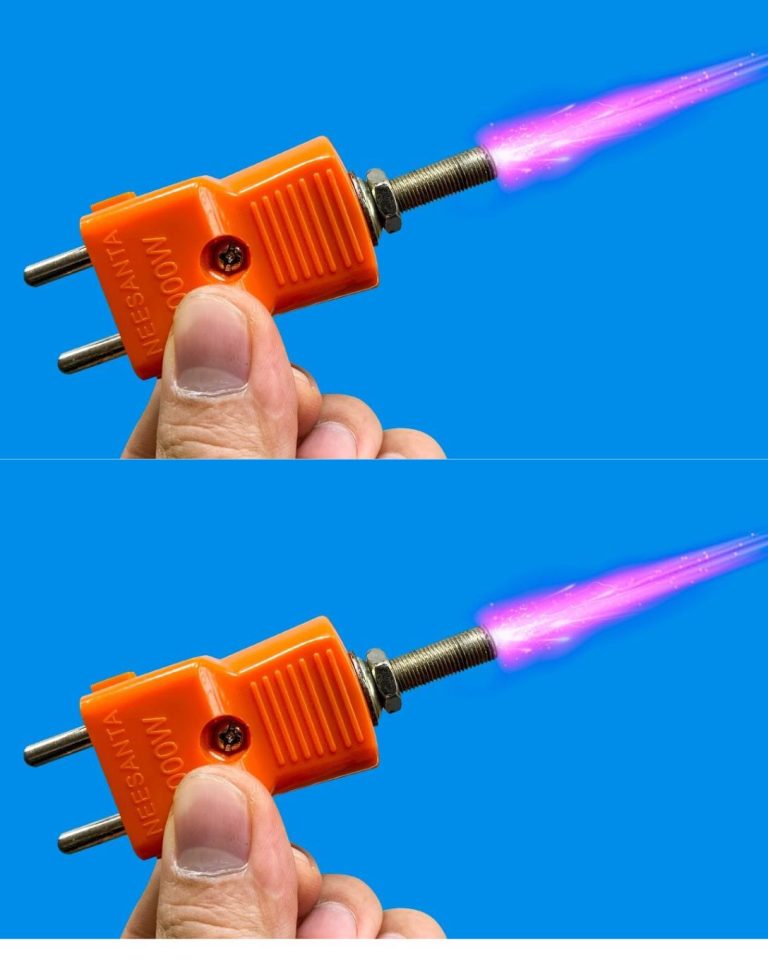The main idea is to transform a useless plug into a tool that can be used for light welding work, especially with thin metal materials such as cables or aluminum sheets.
This invention is not a substitute for a professional welder, but it serves for educational demonstrations, minor repairs, and to develop reuse and electrical skills.
General steps
- Preparing the plug: Open the plug and remove any damaged interior parts. It retains the housing and the basic structure.
- Cable placement: Insert the copper wires into the holes in the plug, making sure they protrude far enough to make contact with the objects you want to solder.
- Insulation: Use electrical tape to cover all exposed connections and prevent short circuits or shocks.
- Stand mount: Fix the plug and cables on a sturdy base that does not conduct electricity.
- Function tests: Before connecting to power, check that all joints are firm. Perform a low-voltage test to verify its operation.
Additional tips:
- Extreme caution: This project involves manipulation of electrical current. Never connect it directly to the network without protections.
- Wear gloves and goggles: Even if the voltage is low, protect your hands and eyes at all times.
- Supervision: If you are a minor, carry out this project with adult supervision.
- Do not overload: This tool is not designed for heavy duty. Use it only for small jobs.
- Reuse wisely: Make sure that recycled materials are not damaged internally.
Turning common, disused items into functional tools is not only a display of ingenuity, but also an eco-friendly act. This mini homemade welder is a perfect example of how recycling can have practical and educational applications.
Dare to try this project and start transforming waste into useful solutions!
ADVERTISEMENT

